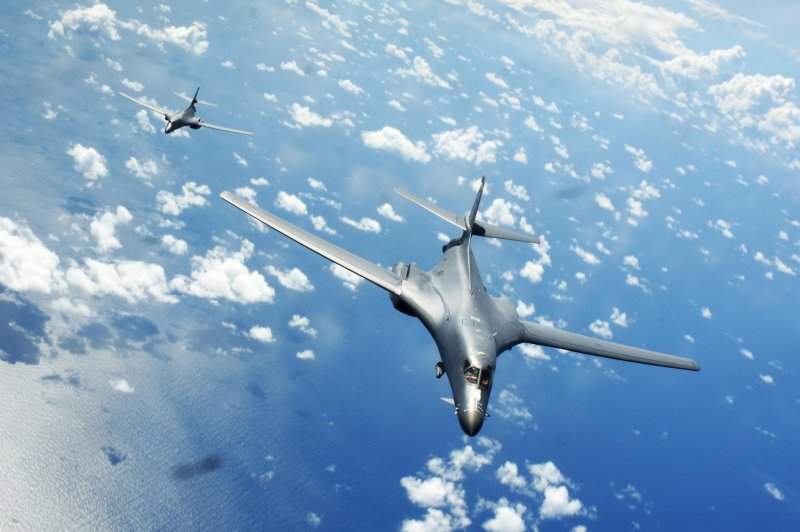July 7 (UPI) -- China issued a warning after two U.S. B-1B bombers took part in a joint drill with Japan in the East China Sea, then flew over the South China Sea.
Beijing's foreign ministry spokesman Geng Shuang told reporters at a regular press briefing on Friday that China is "adamantly opposed to acts that undermine China's sovereignty," South Korean news agency Yonhap reported.















